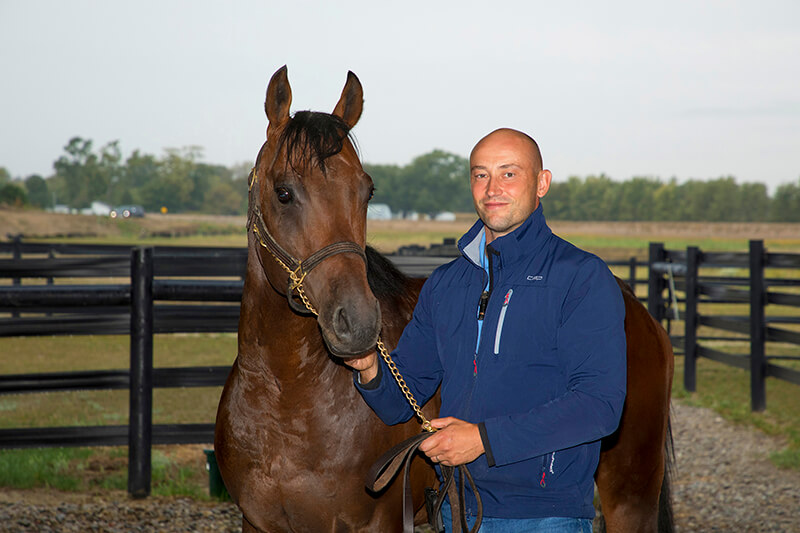November 16, 2017
Purdue Profiles: Tim Gudehus
 Tim Gudehus, lead surgeon at the Centaur Equine Specialty Hospital and clinical assistant professor of equine surgery. (Photo provided)
Download image
Tim Gudehus, lead surgeon at the Centaur Equine Specialty Hospital and clinical assistant professor of equine surgery. (Photo provided)
Download image
Dr. Tim Gudehus has been around horses his entire life. He showed them at an early age, rode semiprofessionally and prepped them for sale. It was only natural for him to pursue a career as a veterinarian whose specialty is equine surgery.
In 2016, Gudehus came to Indiana from Germany, where he served as an equine surgery specialist since 2012. He attended veterinary school in Munich and earned the German equivalent of the doctor of veterinary medicine degree. Before his appointment as lead surgeon for Purdue's Centaur Equine Specialty Hospital, he served as the leading surgeon at one of the largest and fastest-growing animal hospitals in Europe, where he worked on Olympic-level Warmblood horses. He had previously been a surgeon in New Zealand.
What area do you specialize in?
I specialize in general equine surgery, as well as elective orthopedics and fracture repair, upper airway and laparoscopy. I am personally interested in these areas, which led me to spend time in human operating rooms around the world. I studied neurosurgery in Baton Rouge, Louisiana, laparoscopic gastrointestinal surgery in Auckland, New Zealand, and laparoscopic urogenital procedures and traumatology in Aschaffenburg, Germany.
Why are these particular areas important to you?
This is important to me because there is a daily need to make a difference and improve our patient’s outcome. I also enjoy finding new ways to help our patients and improving existing techniques by looking over into our human counterparts and trying to take some ideas.
What does it mean for you to lead the new Centaur Equine Specialty Hospital?
It is a responsibility and challenge that I am proud to take on. Having the necessary skills is one thing, but starting at point zero and building up every individual relationship is a new, challenging quest. The hospital is filling a void between here, Kentucky, Michigan, Illinois and Ohio. The volume of horses in this area, no matter the breed or discipline, exceeds what most people expected. It goes well beyond the local race tracks. We work on people’s hobby, luxury asset and in some cases, family member. We are providing medical infrastructure to the area with a radius of about 70 to 100 miles. That is a life or death distance for people with emergencies.
What is your favorite part of your work?
My favorite part would have to be building trust with our patients and watching it grow over time. Be it a foal stuck in a birth canal, a fractured leg or another sort of emergency, working in this place with these animals makes the team feel like we were able to take in a lost swimmer at sea. It brings a lot of gratitude from the clients who are able to use our facility when they need it most.
What is the future of your work at the hospital?
We will further build our caseload and eventually use that for more targeted, small group teaching events. This may be students at the veterinary school or residents of the area. We also hope to take our experience international to extern/veterinarians who are seeking the exposure and experience that our caseload would provide. We also will continue to offer continuing education and guest speakers.
Writer: Megan Huckaby, 765-496-1325, mhuckaby@purdue.edu

